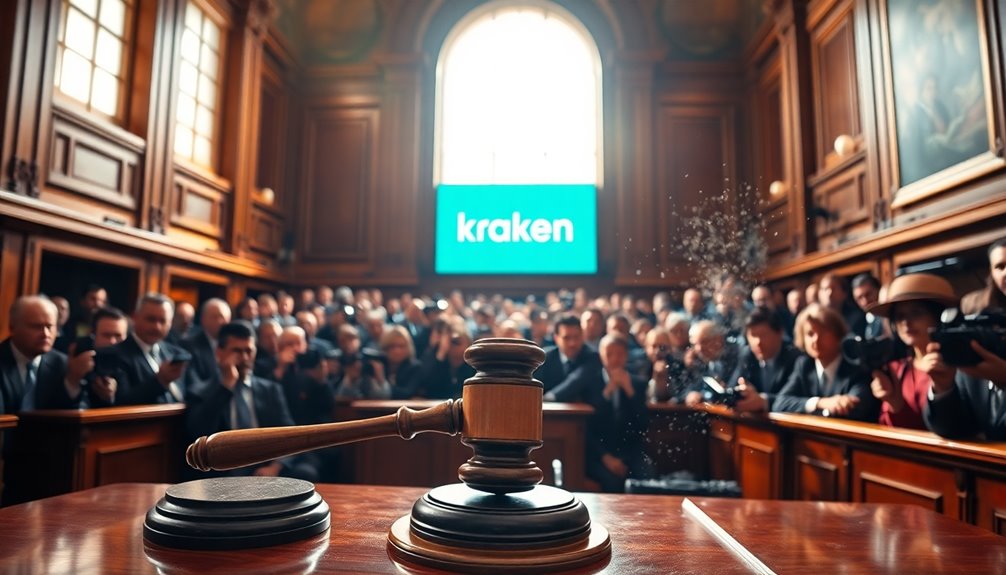You might've heard about the SEC's recent ruling against Kraken, which could reshape the landscape of cryptocurrency regulation. The California judge's decision undermined Kraken's stance on digital assets and securities, raising important questions about the future of exchanges. As the SEC's authority is solidified, the implications for innovation and compliance in the crypto space are becoming clearer. What does this mean for the industry moving forward?

As the SEC ends Kraken's defense in a landmark crypto case, the regulatory landscape for digital assets faces a pivotal shift. You might've heard about the SEC's allegations against Kraken, claiming the company operated as an unregistered securities exchange, broker, dealer, and clearing agency, violating federal securities laws. By classifying certain crypto assets as investment contracts, the SEC asserts these assets fall under the Securities Exchange Act, which complicates the operational landscape for crypto exchanges like Kraken.
The SEC's legal strategy includes intensified enforcement actions against major players in the crypto sector, including Coinbase and Binance. This increased scrutiny signals a broader crackdown, emphasizing the urgent need for clearer regulatory guidelines in the industry. With the SEC forming a dedicated crypto task force to tackle the unique challenges posed by digital assets, you can see that the regulatory framework is changing rapidly.
In this context, Kraken has fought back, invoking the major questions doctrine to argue that the SEC has overstepped its authority without proper Congressional approval. However, a California federal judge dismissed this defense, reinforcing the SEC's regulatory power.
While Kraken's "fair notice" defense remains on the table, asserting that the SEC didn't give adequate notice of the alleged illegality of its actions, the legal battle illustrates the complexities of crypto regulation.
Kraken's position hinges on the argument that digital assets don't meet the Howey test criteria necessary for defining investment contracts. As you watch this case unfold, it becomes clear that Kraken is calling for Congress to step in and establish clear rules for the crypto industry. This push for legislative action highlights the growing recognition that regulatory clarity is essential for fostering a healthy crypto ecosystem.
The implications of this case extend beyond Kraken alone. It sets a precedent for other exchanges facing similar regulatory challenges, indicating that stricter compliance requirements are likely to follow. If the SEC gains the upper hand, you can expect increased scrutiny across the board, leaving many crypto firms on edge.
As international exchanges observe the situation closely, it underscores the global regulatory challenges that the crypto industry faces. Moreover, the case raises questions about the political motivations behind the SEC's actions, especially with potential changes on the horizon.
You might see this as a call for Congress to play a more significant role in defining crypto regulations, which could help limit the SEC's jurisdiction. Public perception will likely influence how similar cases are handled in the future, bringing attention to the need for aligned global standards that make the U.S. an attractive destination for crypto businesses.
Ultimately, clear regulations could bolster cybersecurity and anti-money laundering measures while supporting innovation. But as it stands, the uncertainty surrounding stricter regulations has the potential to stifle the very innovation that has sparked interest in the crypto sector.
As a participant in this evolving landscape, staying informed about these developments is crucial for navigating the future of digital assets.









